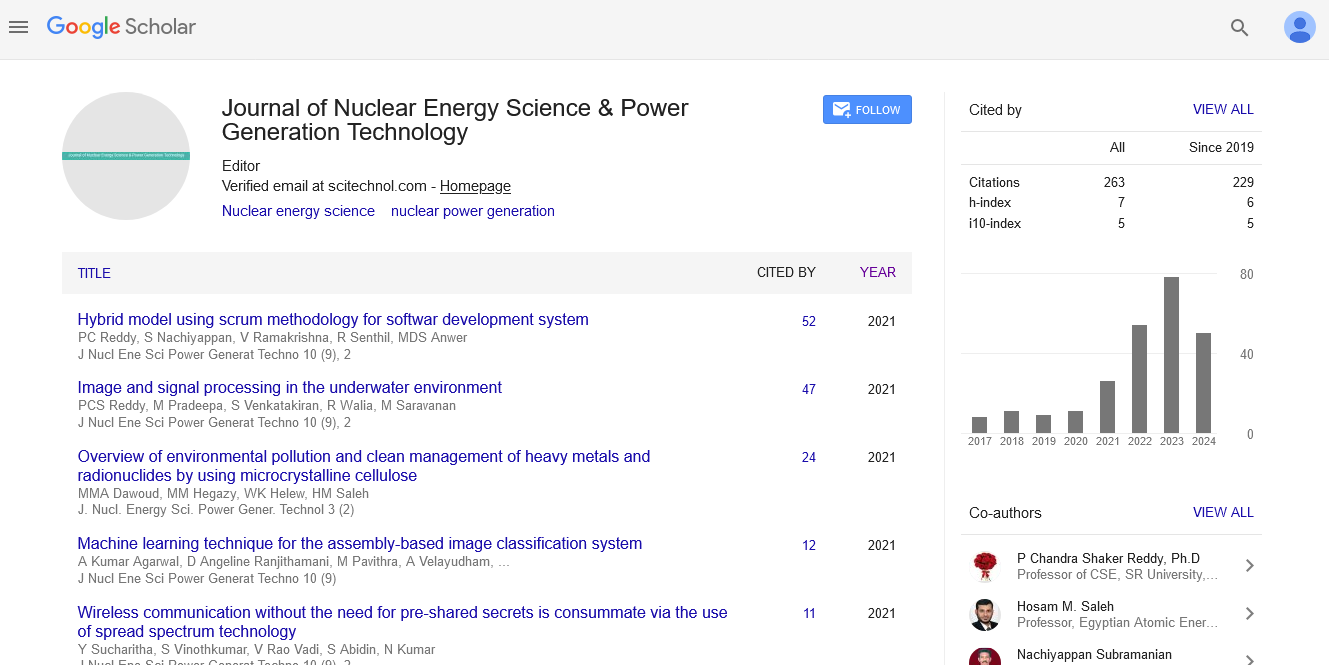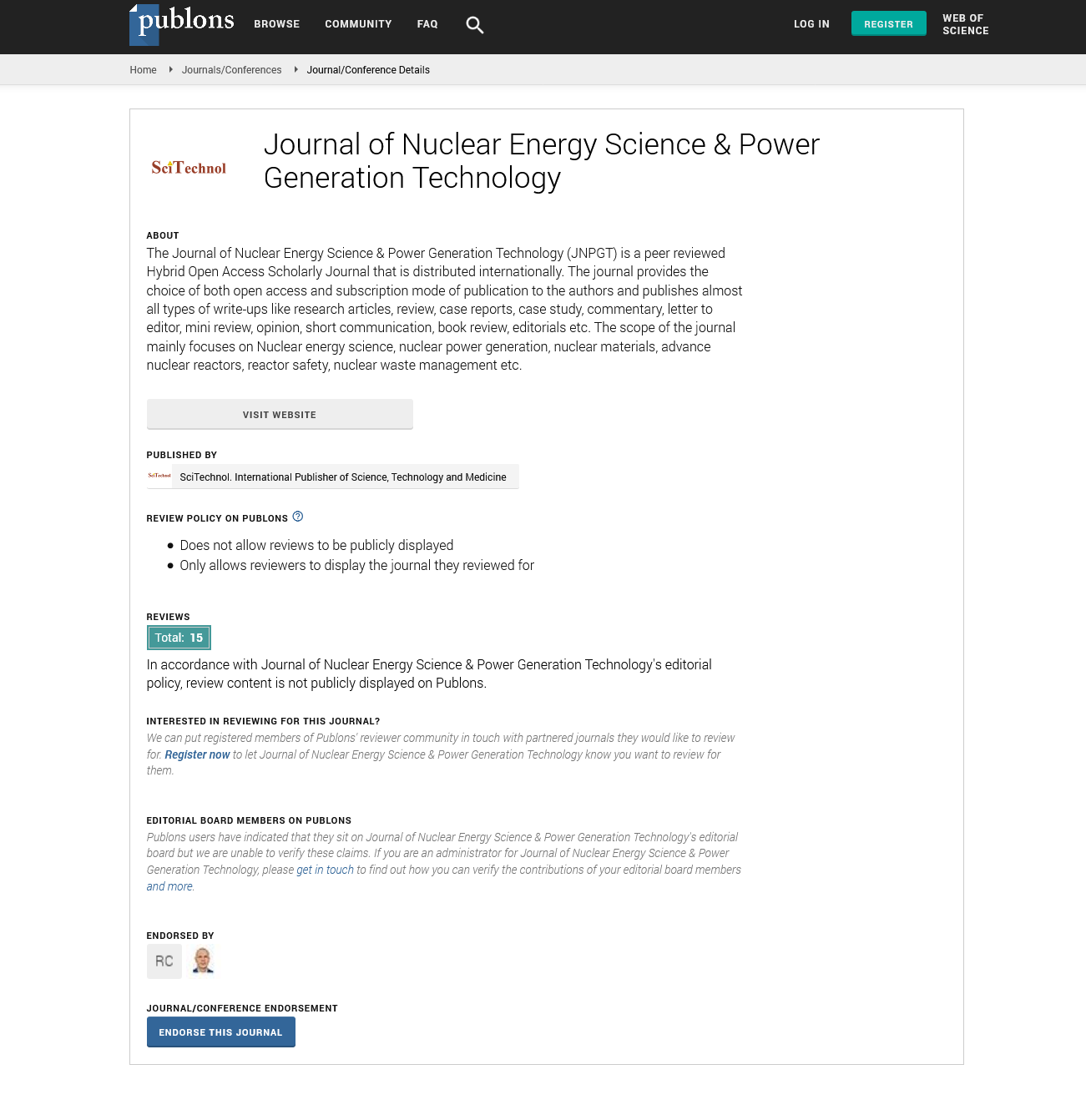The integrated energy community: A project for sustainable economic development and empowering rural habitats
Nasir El Bassam
IFEED, Germany
: J Nucl Ene Sci Power Generat Technol
Abstract
Energy is directly related to the most critical social issues which affect sustainable development: Poverty, job creation, income levels, access to social services, gender disparity, population growth, agricultural production, climate change and environmental quality, security issues and migration. More than 2 billion people, 600 million of them living in Africa, have no access to modern energy sources such as electricity; most are living in rural areas. Sustainable frameworks which can really function and could offer real perspectives are needed: IFEED has developed more than 10 years ago for the United Nations the concept of the “Integrated Energy Settlements” which has been implemented in several counties. The concept comprises the following elements: Decentralized and onsite production of energy for households, small and medium-sized enterprises (SMEs), agriculture, water and waste water treatment, mobility, storage, trade, etc., it also includes social, economic, ecological, education and job creation components. This concept is a dynamic process. It has been modified and implemented in October 2015 in Wierthe, Lower Saxony, Germany. The project in Wierthe integrates 15 enterprises with around 80 employees and trainees, education, training and sport facilities, a forest, fruit and vegetable fields, bee, sheep and horse keeping, e-cars, solar park, bioenergy for heating, desalination and irrigation systems. Wierthe Project is an innovative approach and a concept for maintaining the vital role of rural regions. It targets food and energy, nature and culture, diversity and dignity, economy and society. It combines strategic approaches of clean technologies and sustainable development to live in peace with our self and nature. We have the necessary knowledge, knowhow and the technologies to achieve these goals. We must act while we still have choices.
Biography
Nasir El Bassam is a Scientific Director of the International Research Centre for Renewable Energy (IFEED), Germany, India and USA and Poverty Researcher, promoting the development of Concentrated Solar Thermal Power (CSP) in cooperation with German Aerospace Centre (DLR), and German Federal Ministry for the Environment, Berlin, serving in several committees, and is EU Adviser & Chairman of working group SREN, FAO, UNO. In this context, he worked out the UN-Concept of Integrated Energy Settlements. He has been nominated as Chair, World Council of Renewable Energy (WCRE), Vice President of the Climate Protection Agency and member of Editorial Board of scientific journals. He published more than 10 books, author of numerous publications, and received several awards.
Email: info@ifeed.org
 Spanish
Spanish  Chinese
Chinese  Russian
Russian  German
German  French
French  Japanese
Japanese  Portuguese
Portuguese  Hindi
Hindi 

